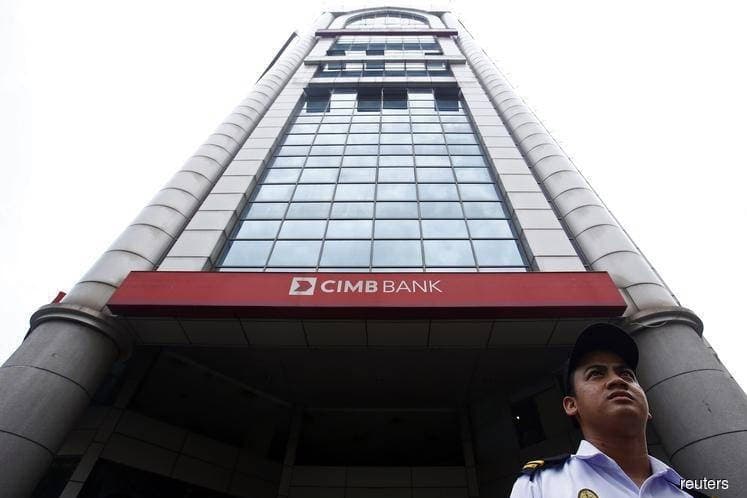
This article first appeared in The Edge Malaysia Weekly on June 22, 2020 - June 28, 2020
SHAHNAZ Jammal, head of group wholesale banking at CIMB Group Holdings Bhd, has resigned, various sources say. One of the sources adds that the bank is trying to persuade him to stay.
Shahnaz has been with the banking group for over a decade and has held a number of top positions there. He was chief financial officer before assuming the role of head of group wholesale banking.
Wholesale banking and consumer banking contributed 29% and 30%, respectively, to CIMB’s profit before tax (PBT) of RM6 billion in FY2019, making them the group’s top earnings segments.
It is unclear if CIMB has accepted Shahnaz’s resignation. “CIMB does not comment on speculation or rumours,” the bank said when contacted.
However, last Thursday, the banking group announced that the board of directors of CIMB Thai Bank PCL had accepted the resignation of its president and CEO Adisorn Sermchaiwong, who is leaving to pursue other opportunities, but will serve his full notice period. An internal candidate has been picked to act as interim CEO.
Closer to home, it is unclear if a candidate has already been identified to take over Shahnaz’s role, although there is speculation that the position will likely be filled by someone from within CIMB.
Prior to joining CIMB, Shahnaz was with Goldman Sachs in London. He also worked at Bankers Trust and Dresdner Kleinwort Wasserstein in London, as well as ABN AMRO Bank in Kuala Lumpur.
It is understood that Shahnaz — who has over two decades of banking experience — was shortlisted together with CIMB’s chief operating officer Omar Siddiq as an internal candidate for the CEO job at CIMB when Tengku Datuk Sri Zafrul Tengku Abdul Aziz relinquished his post after he was appointed finance minister.
However, they were pipped to the position by an external candidate — Datuk Abdul Rahman Ahmad, a former CEO of Permodalan Nasional Bhd. Rahman is also an executive director of CIMB group, as well as CEO and executive director of CIMB Bank Bhd.
Covid-19 fallout makes for tough times ahead Rahman’s appointment at CIMB could not have come at a more challenging time.
It is no secret that the operating environment for banks has been tough over the years, given rising costs and eroding margins. It has been further exacerbated by the Covid-19 pandemic.
As it is, CIMB’s results for the recent first quarter ended March have revealed weaker non-interest income and higher provisions across certain markets.
The group reported a 57% y-o-y decline in 1QFY2020 net profit to RM507.9 million.
Analysts note that CIMB saw a more-than-threefold increase in its provisions to RM1 billion, owing to loan provisions from a single impairment from the oil and gas (O&G) sector in Singapore amounting to about RM430 million.
Significantly higher y-o-y loan provisions due to the single O&G impairment in Singapore caused CIMB’s 1Q2020 allowance coverage to fall to 75.9% compared with 103.5% a year earlier.
For the same period, gross impaired loans rose to 3.4% from 3% while the annualised loan loss charge was 1.06% compared with 0.34% previously.
The asset quality of 5.1% of gross loans in the quarter has been directly impacted by Covid-19, and that of 17.9%, indirectly impacted.
Across sectors, 1% of hospitality gross loans were impacted. For aviation, it was 2.1%, retail 1.5%, and gaming. 0.5%.
As for bonds, the asset quality of 3.8% was directly impacted by Covid-19, while that of 6.2% were indirectly impacted. About 0.1% of these bonds are hospitality related; 1.2%, aviation; 0.1%, retail; and 2.4%, gaming.
As at end-April, about 87% of CIMB’s consumer portfolio in Malaysia took up the moratorium and R+R (restructure and reschedule) options offered under the government’s stimulus package to kick-start the pandemic-hit economy.
At the same time, 74% of its commercial clients in Malaysia and 16% of corporate portfolio clients signed up for the options.
Banks are granting a six-month payment deferment (moratorium) for all types of ringgit-denominated loan/financing except for credit cards.
CIMB’s first-quarter performance could be a harbinger of what is to come in the year ahead. All segments saw lower y-o-y earnings. Consumer banking fell 8.5%, commercial banking 127.4%, wholesale banking 84.7%, and GVP (group venture and partnerships) & funding, 15.5%.
In terms of profit contribution, the consumer banking segment contributed about 74% to group PBT of RM714 million. Wholesale banking made up 10% of group PBT and GVP & funding, 28%.
Meanwhile, the commercial banking segment’s losses negatively impacted group PBT by 12%.
The commercial segment numbers were impacted by one material provision in Singapore while the wholesale segment was affected by weaker trading income in March and higher provisions in Indonesia.
The lower consumer profits were due to higher provisions in Malaysia because of the softer environment.
The GVP & funding business segment saw lower earnings owing to higher expenses despite a 121.4% non-interest income expansion from the group’s fixed income portfolio.
CIMB’s new CEO will have his hands full guiding the bank through the economic fallout and recent management changes.
Save by subscribing to us for your print and/or digital copy.
P/S: The Edge is also available on Apple's AppStore and Androids' Google Play.

